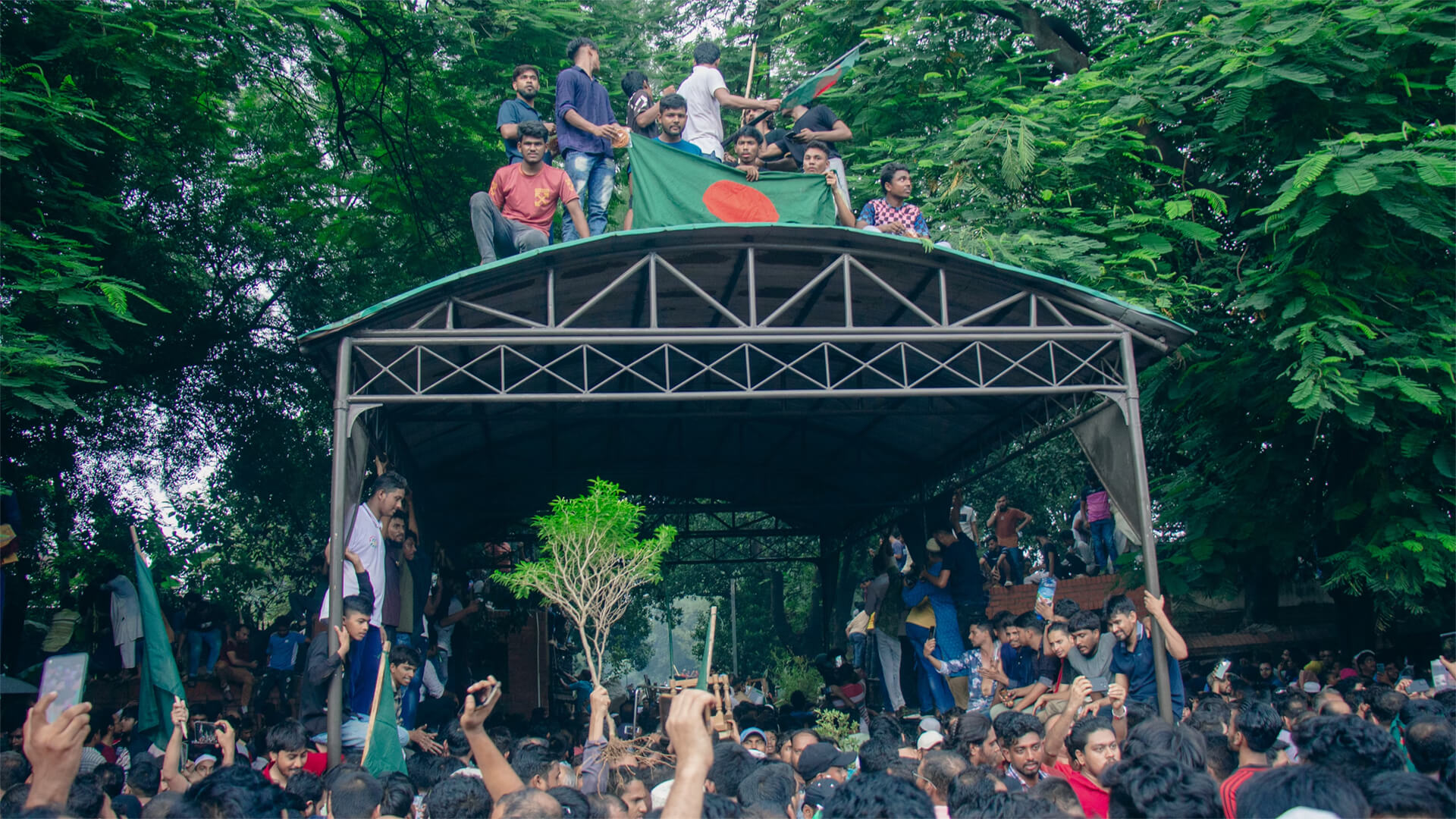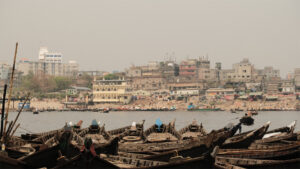This is a follow-up video to the one I sent out on July 23 – linked below.
The situation in Bangladesh has worsened, forcing the Prime Minister to flee the country. Let’s recap what led us to this point and look at what the future might hold for Bangladesh and India.
The youth in Bangladesh began protesting the lack of job opportunities, since government jobs were reserved for those who fought in the revolution and their descendants. The alternative jobs available are working in the textile industry for pennies or risking their lives ship breaking. Not a ton of solid opportunities…
A history of corruption and political incompetence has led the Bangladeshi people to this point, and taking a page out of the Prime Minister’s book wouldn’t be the worst idea for many. That means millions of refugees could be fleeing Bangladesh and most of them would likely be heading to India. But is Modi’s government ready to handle this kind of international crisis?
India hasn’t had to to deal with many international incidents in recent years, so they lack the infrastructure and resources to effectively manage a major crisis like this. When millions of people come knocking on the border door, it will definitely be cause for concern for the Modi government.
Here at Zeihan On Geopolitics we select a single charity to sponsor. We have two criteria:
First, we look across the world and use our skill sets to identify where the needs are most acute. Second, we look for an institution with preexisting networks for both materials gathering and aid distribution. That way we know every cent of our donation is not simply going directly to where help is needed most, but our donations serve as a force multiplier for a system already in existence. Then we give what we can.
Today, our chosen charity is a group called Medshare, which provides emergency medical services to communities in need, with a very heavy emphasis on locations facing acute crises. Medshare operates right in the thick of it. Until future notice, every cent we earn from every book we sell in every format through every retailer is going to Medshare’s Ukraine fund.
And then there’s you.
Our newsletters and videologues are not only free, they will always be free. We also will never share your contact information with anyone. All we ask is that if you find one of our releases in any way useful, that you make a donation to Medshare. Over one third of Ukraine’s pre-war population has either been forced from their homes, kidnapped and shipped to Russia, or is trying to survive in occupied lands. This is our way to help who we can. Please, join us.
Transcript
Hey, everybody. Peter Zeihan here. It is August 5th. And the Prime Minister of Bangladesh, Sheikh Hasina, has fled the country after nationwide riots which have killed a few dozen people. This started out as a group of young people who were basically desperate for jobs. Government jobs are basically guaranteed to people who fought in the revolution or their descendants.
And if you’re not one of those people, you’re kind of out of luck because all that’s left in the economy is becoming a wage slave for the textile industry. And when I say wage slave, I literally mean wage slave and horrible, horrible conditions. Basically, we’ve decided to get rid of sweatshops, and so everything just went to Bangladesh, or to do an incredibly dangerous job, which is called shipbreaking, which takes old vessels, physically breaks them down, and then recycles the steel.
Very easy to get maimed doing that job. Anyway, that’s it. That’s the entire Bangladeshi economy. And, anyway, what started out as protests about jobs basically spread to include concerns about corruption and incompetence. And, if you’re looking for corruption and incompetence, Bangladesh is the place for you. You basically have a couple of political parties that have switched back and forth, back and forth, back and forth over the course of the entire existence of the country since the 70s, turning everything into a patronage network.
So we had a period, you know, 15, 20, 25 years ago where most services for most of the population were not provided by the government because that was all corrupt. You basically had foreign NGOs coming in to do social services. Well, over the last 20 years, those NGOs have basically been brought into the patronage network.
And so most of them stopped operations, and the ones that remain are not exactly doing a lot of great work. So there’s nothing going on here from a positive point of view, from a community point of view, except for generating most of the world’s ready-to-wear knitwear. So, for example, if you’re into fast fashion, you are taking advantage of the near-slave conditions in Bangladesh and massive corruption.
So congratulations to you. Anyway, where does this bring us? Well, this is a country of 100-odd million people, and it’s on a very small footprint of land with very few economic opportunities and almost no resources. Agriculture is largely subsistence, and the government has now failed. Neither of the political parties are in a position to take up governance.
I mean, the ruling party just lost the Prime Minister. They don’t know anyone who’s less corrupt in the ranks. And the opposition is fractured, to say the least. They do have a history of having military coups and military rule from time to time. But one of the positive—if that’s the right word—things the most recent government has done is gutted the military to make military coups less capable.
So the military probably doesn’t have the skill set that’s necessary to take over. So barring some sort of surprise breakthrough and an internal knight in shining armor, which I have a hard time envisioning, we’re probably going to see a lot of economic destitution and civil breakdown, which means we’re probably going to see millions of refugees and immigrants leaving Bangladesh for some other place.
Here’s the thing: the only land border that Bangladesh has is with India. So in India, we’ve got a government under Modi who has been in control now for well over a decade. But he hasn’t faced an international crisis at all. There are really only two countries that matter in terms of nearby relations. One is Pakistan—a nuclear threat—a few wars in the past, but relations there have been pretty calm. Most of the drama has been on the Pakistani side of the equation, which has kind of kept Pakistan bottled up in its own juices and allowed the Indians to relax a little bit. And the other one is Bangladesh, which has also been calm until now.
So the Modi government, unfortunately, doesn’t have a lot of experience in dealing with crises because there hasn’t been one in the last ten years. And now you’re talking about an economic one where you’re talking about a surge of people potentially coming into India, that India simply doesn’t have the facilities, the infrastructure, the capital, or the jobs in order to absorb these people competently.
There’s also the issue that the Modi government has very few connections to the Bangladeshi government. Yes, in past years, there have been reasonably strong connections between Indian governments and the Bangladeshi parties. But most of that was under Congress, which is now in opposition. So we get kind of a double crisis here, with Bangladesh potentially falling apart and with India not really having the traction it needs to deal with the situation in a meaningful way.
So a lot of moving pieces in this, and none of them are really moving in the right direction, but we’re going to find out real soon what the Modi government is made of when it comes to an international issue that actually matters to it right on its own border, as opposed to dealing with some sort of nonaligned movement issue that has broader political connotations around the world but is mostly about atmospherics.
I mean, this is where the rubber is going to hit the road, and we’re going to find out real soon.





